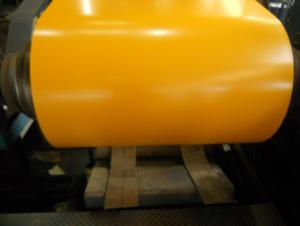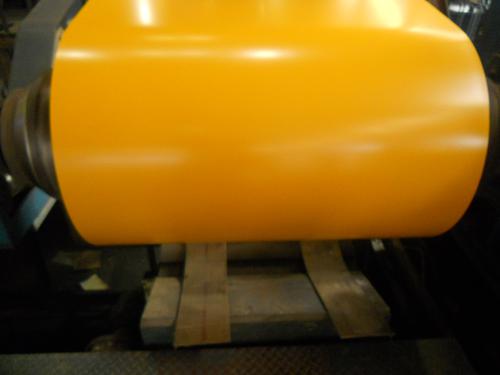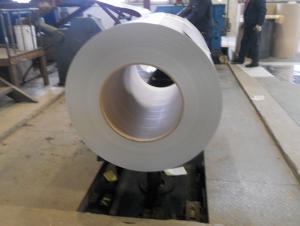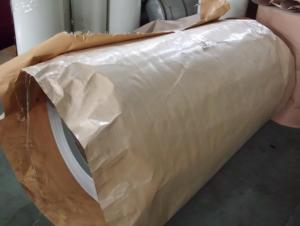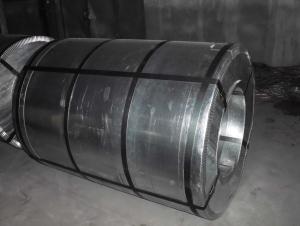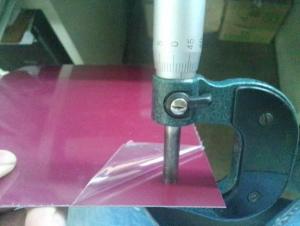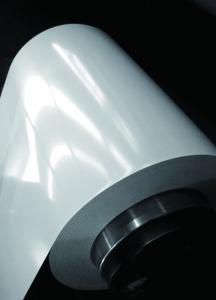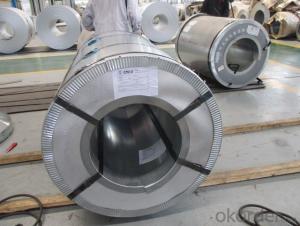Pre-painted Galvanized Steel Coil-JIS G 3312-RAL9010
OKorder Service Pledge
OKorder Financial Service
You Might Also Like
Pre-painted Galvanized Steel Coils/ PPGI/GI
I Specifications:
1.Thickness:0.16-2.0mm
2.Width:600-1500mm
3.Material: SGCC,SGCD,SECC,SECD,DX51D+Z
4.Zinc coating:40-275G/M2
5.Surface Structure: galvanized ,zero spangle, regular spangle or normal spangle
6.Surface treatment: chromated and oiled, chromated and non-oiled
7.Color:all RAL series
II Main characteristics :
1.strong corrosion resistance
2.surface quality
3.conducive to deep processing,such as the embossed PPGI,printed PPGI&punching PPGI
4.economy and practicality
III Applications:
Household Appliance:
1.Refrigerator shutter &side panels, Washer, Freezers, Air conditions,
2.Rice Cooker, Microwave Ovens, Water Heaters, Sterilization Cabinets, Range Hoods
3.Computer Panels , DVD/DVB panels, TV back panel etc.
Teaching Board: whiteboard, blackboard, green board(chalk board).
Indoor Decoration: Fireproof Door, kitchen cabinet, wall decoration.
Shipping Industries: Ship, Fecht, Marine.
Elevator/Medical Equipment/Rubbish Bin.
Width:600mm-1250mm
- Q: How are steel coils used in the manufacturing of mining equipment?
- Steel coils are used in the manufacturing of mining equipment for various purposes, such as forming the structural components, building frames, and creating durable and robust machinery. These coils are often shaped, cut, and welded to construct mining machinery that can withstand the harsh conditions and heavy-duty operations in the mining industry.
- Q: How are steel coils used in the production of HVAC ductwork?
- Steel coils are used in the production of HVAC ductwork as they are rolled into thin sheets and then formed into the desired shape to create the ducts. The coils provide strength and durability to the ductwork, ensuring it can withstand the high temperatures and pressure of air conditioning and heating systems.
- Q: looking for a good pocket knife. i keep going through these 440 steel pocket knives with every day work usage. this will be my 4th. even when i use a whetstone they stay sharp for a short period of time but the edge does not last, 440 is too soft! what is a good steel to look for in a pocket knife? also what are some good brands. ive been using gerber and buck sofar. if you could recommend me a few mid/small sized knives i would greatly appreciate it!
- This Site Might Help You. RE: best folding pocket knife or best steel for them? looking for a good pocket knife. i keep going through these 440 steel pocket knives with every day work usage. this will be my 4th. even when i use a whetstone they stay sharp for a short period of time but the edge does not last, 440 is too soft! what is a good steel to look for in a pocket knife?...
- Q: I want to hear from those who own a scandium revolver. I know that scandium makes for a much lighter gun than steel, but how do they hold up durability-wise? Is their lifespan shorter than a comparable steel revolver?
- You know, I've kind of wondered about that too. Admittedly Scandium is a rather durable material, no contest there... but from the perspective of a machinist who has played with said Scandium in the past... it seems to *flake* on the blanchard grinders... hell, even fly cutting it acts kinda weird. I like steel because it's predictable, it has a fatigue point that is predictable... and when that fatigue point is met (limits of elastic modulus met by repetitive stress/strain exertions) it's fairly obvious. You get cracking, warping, and sometimes stretch marks... (yes, you can get *stretch marks* on steel). Scandium... I don't know. I don't know if it'll start cracking when it finally fatigues... or if it'll just let go all at once. Anyways, I don't think I'd worry too much about your revolver. It'll hold up I'm very sure (they've been around for years and people have put many, many rounds through them). Call me odd, but I'm a fan of steel. It's conventional, inexpensive (relatively speaking), and utterly durable.
- Q: What are the safety precautions to be followed while handling steel coils?
- When handling steel coils, there are several safety precautions that should be followed. These include wearing appropriate personal protective equipment, such as gloves and safety glasses, to protect against cuts, abrasions, and eye injuries. It is important to use proper lifting techniques and equipment to prevent strains or back injuries. Steel coils should be securely stacked and stored to prevent them from falling or rolling, and caution should be exercised when moving or transporting them to avoid accidents. Additionally, workers should be trained on the safe handling and storage procedures specific to steel coils to minimize any potential hazards.
- Q: I just want to know why is cold steel katana a very good sword?? How can you tell if a cold steel katana is good or not
- Can see this one is gong to cause a lot of controversy, price, country of origin, stuff like that might help you form an opinion on the particular sword
- Q: How are steel coils distributed globally?
- Steel coils are distributed globally through a variety of channels, including international trade, shipping, and logistics networks. Manufacturers and suppliers typically export steel coils to different countries through shipping containers or bulk carriers. These coils are then distributed to various industries and customers through local distributors, wholesalers, or directly to end-users. The distribution process involves coordination between different stakeholders, such as freight forwarders, customs agents, and transport companies, to ensure efficient and timely delivery of steel coils to their destinations worldwide.
- Q: I like non-stick cookware but it dont hold up no matter how much money you spend. What isthe best kind? Is there something better then stainless steel or iron skillet? I do not care if I have to use extra elbow grease to clean a pan.
- I have a combination of them both. I have Le Creuset enameled cast iron dutch-ovens, pots and pans; as well as All Clad stainless steel saute and deep-rimmed pans which have a copper core. I have one non-stick pan that I use for cooking eggs in.
- Q: Can steel coils be coated with magnetic materials?
- Yes, steel coils can be coated with magnetic materials.
- Q: What are the common defects found in uncoiled steel coils?
- Some common defects found in uncoiled steel coils include surface defects such as scratches, dents, and rusting, as well as dimensional defects like coil width variation, edge waviness, and coil set. Other defects may include coil breaks, oil spots, and uneven winding tension.
Send your message to us
Pre-painted Galvanized Steel Coil-JIS G 3312-RAL9010
OKorder Service Pledge
OKorder Financial Service
Similar products
Hot products
Hot Searches
Related keywords
